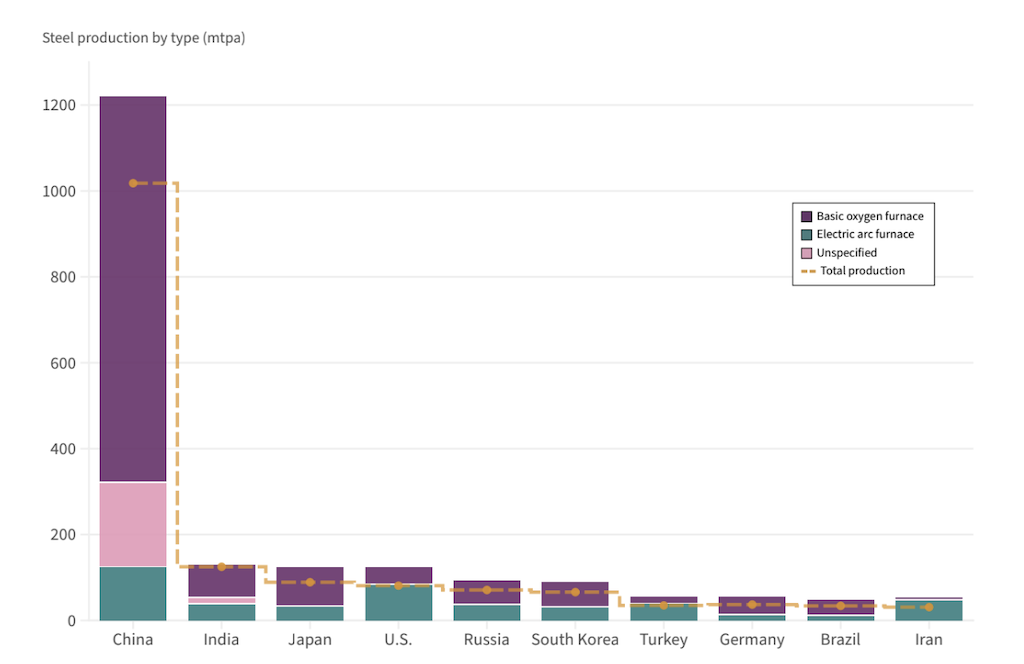
DeBriefed 21 July 2023: Earth ‘set’ for hottest year; John Kerry in China; UK’s ‘weak’ climate plan
Wanyuan Song
07.21.23Wanyuan Song
21.07.2023 | 1:12pmWelcome to Carbon Brief’s DeBriefed.
An essential guide to the week’s key developments relating to climate change.
This is an online version of Carbon Brief’s weekly DeBriefed email newsletter. Subscribe forfree here.
This week
Extreme weather
‘NEW NORM’:The World Meteorological Organization has warned that extreme temperatures “sweeping the globe this week are the new normal in a world warmed by climate change”, with temperatures going over 50C in parts of the US and China,BBC Newsreported. TheIndependent补充说,据科学家说,2023年是“集to be the hottest [year] on record”.
LANDSLIDES:At least 16 people were killed in a landslide following serious downpours affecting the Irshalwadi village in India’s Raigad district, theIndian Expressreported. In Nepal, theKathmandu Postreported that “at least 30 people” have died in landslides and floods since the start of this year’s monsoon. TheKorean Heraldreported torrential rains have left at least 41 dead and 9 missing across South Korea.
FRONTPAGE NEWS:亚慱官网analysed hundreds of news stories from across the world and found that, in the first three weeks of July, extreme weather featured on at least 114 frontpages in 84 newspapers, published across 32 countries. From abnormal heat in Antarctica to fires in southern Europe, almost every region on Earth has faced climate extremes this month, according to the analysis.
Kerry visits China
CLIMATE TALKS RESUMED:US climate envoy John Kerry visited China this week and spoke with a number of senior Chinese officials, including premierLi Qiangand his counterpart climate envoyXie Zhenhua。(The premier is the highest administrative position in the government of China.) OnTwitter, Kerry said he had “an important discussion on how the US and China can accelerate action and work together to keep 1.5 C alive”. (See Spotlight below for more on this.)
UK’s ‘weak’ climate plan
ADAPTATION:The UK government released its new strategy for preparing for the impacts of climate change – its third National Adaptation Programme, according to Carbon Brief’s climate policy correspondentJosh Gabbatiss。The plan includes modest new commitments to construct public buildings designed for higher temperatures, £15m for researching climate change solutions and a pilot for a new climate risk information service, reportedBBC News, but little else in the way of new legislation or investment.
‘VERY WEAK’:Before its official release, the document was leaked to theGuardian。The newspaper said that the document was “condemned as very weak” by experts and failed to “adequately protect people in the UK from extreme heat”. Experts added that there is a “yawning gap” in measures to restore nature, according to the newspaper.
‘LACKADAISICAL’:Later on this week, a government-selected group of climate experts accused UK prime minister Rishi Sunak of having a “lackadaisical” approach to tackling climate change, theTimesreported. The “Friends of COP” group, established under Boris Johnson’s government ahead of the COP26 climate summit in Glasgow in 2021, said in a letter to Sunak that they had “a shared and deep concern” over his lack of action on climate issues. TheFinancial Timesalso reported on the letter, noting that it is the latest in a series of interventions against Sunak’s climate policies.
Around the world
- G20 REPORT:A report commissioned by the G20 group of nations found that multilateral development banks must mobilise an additional $3bn each year by 2030 to fund climate action and the other sustainable development goals, according toReuters。
- BOLIVIA DEFORESTATION:The loss of Bolivia’s intact forests surged by nearly a third last year,New Scientistreported. The rate is so high that the country now accounts for 9% of all primary forest loss globally.
- S AFRICAN POWER PROBLEMS:Almost half of all the projects greenlit under the relaunch of South Africa’s renewable power purchase programme have failed, two government sources toldReuters。
- SHIPPING SECRETS:Lobbyists for firms such as Shell, ExxonMobil and Saudi Aramco joined government negotiators at recent secretive talks on how to cut emissions from shipping,Climate Home Newsreported.
10.24kg
The amount of CO2 produced every day by a person eating a “high meat” diet in the UK. Vegans produce just 2.47kg of CO2 each day, according to research covered byBBC News。
Latest climate research
- Abrupt shifts between hot and wet extremes became 22% more frequent every decade during 1956-2015, according to new research inGeophysical Research Letters。
- Capping the energy use of the top 20% of consumers across 27 European countries could cut emissions from home energy use by 11%, transport by 17% and total energy consumption by 10%, a new study inNature Energyfound.
- Mediterranean green turtles have been nesting in the same North African seagrass meadows for at least 3,000 years, according to research in theProceedings of the National Academy of Sciences。Seagrass meadows are among ecosystems that are “especially vulnerable to global warming”, the authors said.
(For more, see Carbon Brief’s in-depth daily summarises of the top climate news stories onMonday,Tuesday,Wednesday,ThursdayandFriday。)
Captured
China dominates world’s steel production
Overcapacity in top steel producers remains consistent

More than half of the world’s steel is made in China, according to new research from Global Energy Monitor covered by亚慱官网this week. The research found that the global steel industry has made a “pivotal” shift towards lower-carbon forms of production, but remains short of being compatible with the world’s aspiration to limit global warming to 1.5C. “Overcapacity” remains a significant issue within the steel industry, with capacity exceeding demand by 26% globally in 2022, according to theOECD。
Spotlight
约翰•克里的北京之旅:一个新的的开始US-China climate era?
After the world’s two largest emitters resumed talks in China this week, Carbon Brief explains what the countries agreed on – and what sticking points remain.
US climate envoy John Kerry was in China this week and resumed climate talks that weredisrupteda year ago, when the then-speaker of the US House of Representatives Nancy Pelosi visited Taiwan, a self-governed island that Beijing views as a breakaway province.

Over three days, Kerry met with a number of senior Chinese officials (including Xie Zhenhua, pictured), but not president Xi Jinping.
Before wrapping up, the veteran US diplomattweetedon19 Julythat he had a “constructive conversation” about “the climate crisis – a universal threat to humankind – and the imperative for the US and China to work together to address it”.
What was agreed by the two countries?
So far, no joint statement has been issued by the two countries.
Politicoreported that the trip “yield[ed] no breakthrough on climate”, despite what Kerry described as “productive” conversations.
During a新闻发布会上, Kerry said “there are things…that [the US and China] very clearly agreed on” and that the two countries “are going to meet intensively in the next weeks” to continue conversations.
Kate Logan, an associate director of climate at the Asia Society Policy Institute thinktank, told Carbon Brief that the countries made progress on topics such as “scaling renewable energy to reduce coal emissions”, “addressing non-CO2 gases [particularly methane]” and “ensuring a successful outcome from COP28”, the next UN climate summit taking place in Dubai in December.
She described these agreements as “important steps”, but added:
“With only four months to COP28, real impact will urgently require concrete commitments to come out of the dialogues planned for the weeks ahead.”
Thom Woodroofe, a former climate diplomat and the founding director of the Asia Society Policy Institute’s China Climate Hub, said in an email that “the door is clearly open to engage further on climate and the optics bode well for future rounds of discussion, including between Biden and Xi in November”.
What do the countries still not agree on?
The issue of “climate finance” – who should pay funds to help other countries tackle and adapt to climate change – remains a source of disagreement between the US and China.
Ahead of Kerry’s visit, the US treasury secretary Janet Yellen visited Beijing, where she urged China toboost climate funding。The US national security adviser Jake Sullivan toldCNNon the day Kerry travelled to Beijing that China should not “hide behind” developing nations, but “step up to their responsibility” to tackle climate change.
But Chinese politicians are still keen to remind developed countries about their failure to meet past climate-finance promises. In June, Chinese foreign ministry spokesperson Mao Ning said at apress conferencethat it was “regrettable” that “developed countries have yet to deliver on their promise of mobilising $100bn per year for climate action in developing countries”.
When meeting with Kerry, Chinese premier Li Qiang emphasised this sentiment, when hesaid:
“Developed countries should take the lead in emissions reduction and fulfil their financial commitments as early as possible, while developing countries should make contributions within their capabilities.”
During Kerry’s last day in China, aspeechby Xi hinted at remaining differences between the two countries. He said that “the path, method, pace and intensity to achieve this [dual carbon] goal should and must be determined by ourselves, and will never be influenced by others”.
Kerryrespondedto Xi’s comment, saying:
“We’re not involved in dictating anything to anybody. We’re involved in following the science. And, if anything, the science dictates the parameters that we all need to live by.”
Logan told Carbon Brief:
“China won’t want to look like its hand is being forced. But new, joint action from China and the US could still be a strategic olive branch and lend credence to China’s rhetoric on being a cooperative international player on climate.”
Watch, read, listen
WEATHER POLITICS:New York TimescolumnistPaul Krugmanwrote an opinion explaining why “we absolutely should politicise the weather”.
NIGERIA FOOD CRISIS:Nigeria has a goal to be Africa’s largest economy self-reliant in wheat production, but a documentary from theAssociated Pressinvestigated how climate change and insecurity has hindered those efforts.
CLIMATE SPICE:Deutsche Wellespoke to “renowned Indian author Amitav Ghosh about the origins of the climate crisis, the story of one very important spice, and why he prefers the term ‘planetary crisis’ to the climate crisis”.
Coming up
- 22 July:G20 Energy Transitions Ministerial, Goa, India
- 23 July:Spain’s general election
- 24-25 July:3rd G20 Disaster Risk Reduction Working Group Meeting, Chennai, India
- 25-28 July:59th Session of the IPCC (IPCC-59), Nairobi, Kenya
- 28 July:G20 Environment and Climate Sustainability Ministers Meeting, Chennai, India
Pick of the jobs
- E3G,senior policy advisor, German climate foreign policy| Salary: Unknown. Location: Germany
- UK Labour Party,policy advisors – net zero (x2)| Salary: £42,673. Location: London
- UN Development Programme,nature, climate and energy internship| Salary: Unknown. Location: Pretoria, South Africa
- University of Essex,lecturer in environmental policy and politics| Salary: £45,585-£54,395. Location: Colchester, Essex
DeBriefedis written in rotation by Carbon Brief’s team and edited byDaisy Dunne。Please send any tips or feedback to[email protected]
-
DeBriefed 21 July 2023: Earth ‘set’ for hottest year; John Kerry in China; UK’s ‘weak’ climate plan



